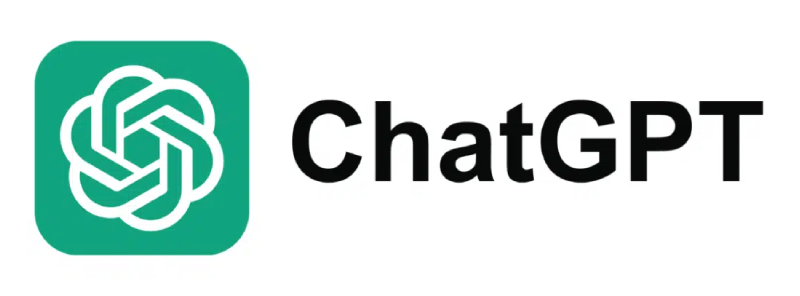Key takeaways
- 79% of buyers expecting digital options, agents who rely on printers and couriers risk losing deals. E-signatures eliminate this friction by enabling secure, device-agnostic signing in minutes.
- E-signatures are legally valid under U.S. laws (UETA and ESIGN Act), provided they meet identity, intent, and secure record criteria. The tools must include features like email authentication, tamper-proof records, and timestamp tracking to hold up in court and prevent fraud—especially in high-stakes deals.
- Verifying the signer’s identity, securing consent, using tamper-evident documents, and following state-specific rules are essential to ensure e-signatures hold up in court and don’t lead to costly errors or fraud.
Real estate deals have to move fast.
Paperwork should never be the thing slowing you down. It is frustrating to wait for a buyer to find a printer, or for a seller to fax back page 12.
Clients expect to sign deals from their phones while grabbing coffee. In fact, more than 79% of home buyers now expect digital signing options.
If you’re still stuck in the pen-and-paper world, you're losing time, and probably deals.
In this post, we'll show you how electronic signatures for real estate work, why they’re legal, and how you can use them to speed up closings without cutting corners.
Let’s get your paperwork out of the Stone Age.
What is a Real Estate Electronic Signature?
A real estate electronic signature is a legally valid way to sign property-related documents digitally. Instead of printing, signing, scanning, or mailing paper copies, clients and agents can sign agreements online, often within minutes.
It works across devices, like phones, laptops, tablets, and can be in several formats:
- Typing your name into a signature field
- Drawing your signature with a mouse or finger
- Clicking a button that says “I Agree”
- Uploading a scanned image of your handwritten signature
Why e-signature for real estate matters
Real estate deals don’t wait. Buyers change their minds. Sellers move on.
Using e-signatures keeps the momentum going. You can sign, send, and close from anywhere.
67% of real estate professionals considered eSignature tools helpful. Many said these tools made it easier to manage documents efficiently.
3 Important uses of electronic signature for realtors
You’ll most often see e-signatures in:
- Purchase agreements: Buyers and sellers can sign offer letters, counteroffers, and final sale contracts digitally.
- Example: An out-of-town buyer takes a virtual tour, signs the purchase offer digitally, and locks in the deal, all before flying back home
- Lease contracts: Property managers and tenants can sign rental agreements, renewals, and notices without needing to meet in person.
- Example: A tenant renews their lease from a different city using a digital signature app, avoiding delays and mailing hassles.
- Disclosure forms: Agents can share mandatory disclosures, like property issues or lead paint notices, for digital acknowledgement and signature.
- Example: After an inspection reveals roof damage, the agent sends a disclosure online. The buyer signs it digitally the same day, keeping the deal on track
Signing fast is great, but signing legally is non-negotiable. Fortunately, electronic signature real estate contracts are just as legitimate as paper-based ones, and have additional benefits for compliance.
Are Electronic Signatures Legal in Real Estate?

Yes. Electronic signatures are legally valid in real estate.
They’re backed by two major U.S. laws:
- UETA (Uniform Electronic Transactions Act)
- ESIGN Act (Electronic Signatures in Global and National Commerce Act)
Both laws confirm that an electronic signature carries the same legal weight as a handwritten one, as long as certain conditions are met.
Legal criteria for a valid e-signature
To be legally binding, an electronic signature for real estate must meet these three core requirements:
- Identity: You must be able to verify who’s signing. Verification can happen through email authentication, phone verification, IP address tracking, or multi-factor authentication.
A homebuyer lost a hefty amount after hackers intercepted real estate transaction emails and tricked them into wiring money to a fake account. Weak identity verification and unsecured e-signature processes contributed to the loss.
- Intent: The signer must clearly indicate their intention to sign (for example, by clicking “I Agree” or typing their name in a marked field).
- Secure record: The signature must be attached to an unalterable, tamper-evident digital record that can be stored and retrieved if needed.
What counts as an acceptable electronic signature for real estate?
A few acceptable formats of e-signature include:
- Typed names in signature fields
- Drawn signatures using a mouse, stylus, or finger
- Click-to-sign checkboxes (if linked to a clear statement of intent)
- Uploaded images of a handwritten signature
Why Realtors Prefer eSignatures

Paperwork has always been one of the least glamorous parts of real estate, but with market volatility intensifying —5.9% drop in existing-home sales from February to March 2025, reaching the lowest level since 2009—electronic signatures have become more critical than ever to expedite transactions and prevent deals from falling through.
They offer:
#1 Accuracy
- E-signature tools flag incomplete fields in real time
- Mandatory fields ensure every signature, date, and initial is captured
- Reduces back-and-forth and prevents costly delays
#2 Convenience
- Clients can review and sign on the go, from phones, laptops, or tablets
- Speeds up deals, especially when multiple parties are in different locations
- No printing, scanning, or courier chaos
#3 Compliance
- Every action is tracked: who signed, when, and where
- Time-stamped records protect against legal disputes
- Easy to retrieve and reproduce if ever challenged in court
#4 Security
- Data is encrypted end-to-end
- Only authorized users can view or sign specific sections
- Platforms like Docupilot let you control who sees what, and when
5 Features to Look for in a Real Estate eSignature Tool

Not all eSignature tools are designed for the complexity of real estate transactions. When you’re dealing with time-sensitive, legally binding documents, you need a solution built for accuracy, compliance, and speed.
Ensure your eSignature tool covers:
#1 Mobile optimization: for clients on the go
- Your clients aren’t always at their desks
- A good tool should work smoothly on phones and tablets
- Bonus if it supports SMS signing for quick turnarounds
#2 Pre-built legal templates
- Saves time on repetitive documents like purchase agreements and disclosures
- Reduces legal risk, no missing clauses or outdated formats
- Look for tools that offer customizable real estate-specific templates
#3 Bulk send: for disclosures and lease agreements
- Send the same document to multiple parties in one click
- Perfect for property managers handling multiple units
- Track who signed and who didn’t, without chasing emails manually
#4 CRM or MLS integration
- Syncs contact details and property data automatically
- Eliminates manual data entry
- Helps keep everything in one workflow, no tab overload
#5 Real-time notifications and tracking
- Know instantly when someone views or signs a document
- Follow up with the right people at the right time
- Better visibility = fewer surprises at closing
5 Best Practices for Using Electronic Signatures in Real Estate

eSignatures make real estate transactions faster, but speed without caution can lead to legal issues.
Here’s how to stay sharp and protect your deals:
#1 Verify the signer’s identity before completing the transaction
Confirm the signer’s identity through a phone call, secure link, or authentication method built into your eSignature tool. Never rely on an email address alone. Because the last thing you want is a cousin Fred signing instead of client Fred.
#2 Use tamper-evident documents
Use a platform that locks down documents after signing. If anyone messes with the file, the system will call it out instantly, or can even scrap the contract. You'll have proof in seconds, and so will the court if it ever comes to a dispute.
#3 Get client consent to eSign
Always confirm client consent before sending any document for electronic signing. The ESIGN Act and UETA make it mandatory. Consent can be recorded verbally, through email, or via an integrated step in the signing platform. Many eSignature solutions include this feature automatically. No consent, no valid signature. Simple.
#4 Confirm local and state compliance
Real estate regulations differ across states and regions. Certain transactions, such as deed transfers, may still require physical signatures or notarization. To avoid compliance issues, verify local requirements before finalizing any electronic document.
#5 Store signed copies in secure digital vaults
Store signed documents in a secure, encrypted digital vault—not in personal emails or random desktop folders. Use cloud-based storage to keep everything safe, organized, and audit-ready. Treat your files like real assets, not something tossed into a forgotten folder.
How Docupilot Simplifies eSigning for Real Estate
You’ve got listings to manage and deals to close, and you want it fast. Here’s how Docupilot makes eSigning feel less like admin work and more like autopilot:
#1 Easy document creation
- Use pre-built templates for sales contracts, NDAs, lease agreements, and more, saving time while ensuring compliance
- Auto-fill documents by pulling client data from Google Sheets, Typeform, and other tools, reducing errors and manual entry
- Customize at your ease, so last-minute changes don’t require starting over
#2 Seamless eSignature Integration
- Works with trusted platforms like SignNow, DocuSign, and more
- Set signing orders so buyers, sellers, and agents sign in the correct sequence
- Automate reminders to keep transactions moving without constant follow-ups
- Track progress with real-time updates, so you always know which documents are pending
#3 Auto-fill data
- Pull client info, property details, and pricing directly from Google Sheets, Typeform, Airtable, and more
- No manual entry = no costly typos
- Dynamic fields auto-populate with zero effort
#4 Collaborative workflows
- Secure document sharing, ensuring sensitive information stays protected
- Version control, so teams always work on the latest draft without confusion
Ready to Simplify Real Estate eSigning?
In real estate, every second counts. Electronic signatures are 100% legal, protect you, your clients, and your business from costly mistakes and endless paperwork delays.
If you're still relying on old-school pen-and-paper deals, you're slowing your closings down.
Simplify your real estate deals with Docupilot. Create, send, and manage signed documents faster, smarter, and with less stress with Docupilot.
FAQs
Which MLS tools offer free e-signatures?
Some MLS platforms include basic e-signature tools with membership:
- TransactionDesk: Available with many MLS services like Bright MLS and CRMLS
- zipForm Plus: Free with membership through many Realtor associations
- Dotloop Basic: Included with some MLS plans or offered at a discount
Can a client sign on mobile?
Absolutely. Most modern e-signature platforms are fully mobile-optimized. Clients can:
- Open documents on their phone or tablet
- Review and sign with a tap, swipe, or drawn signature


















